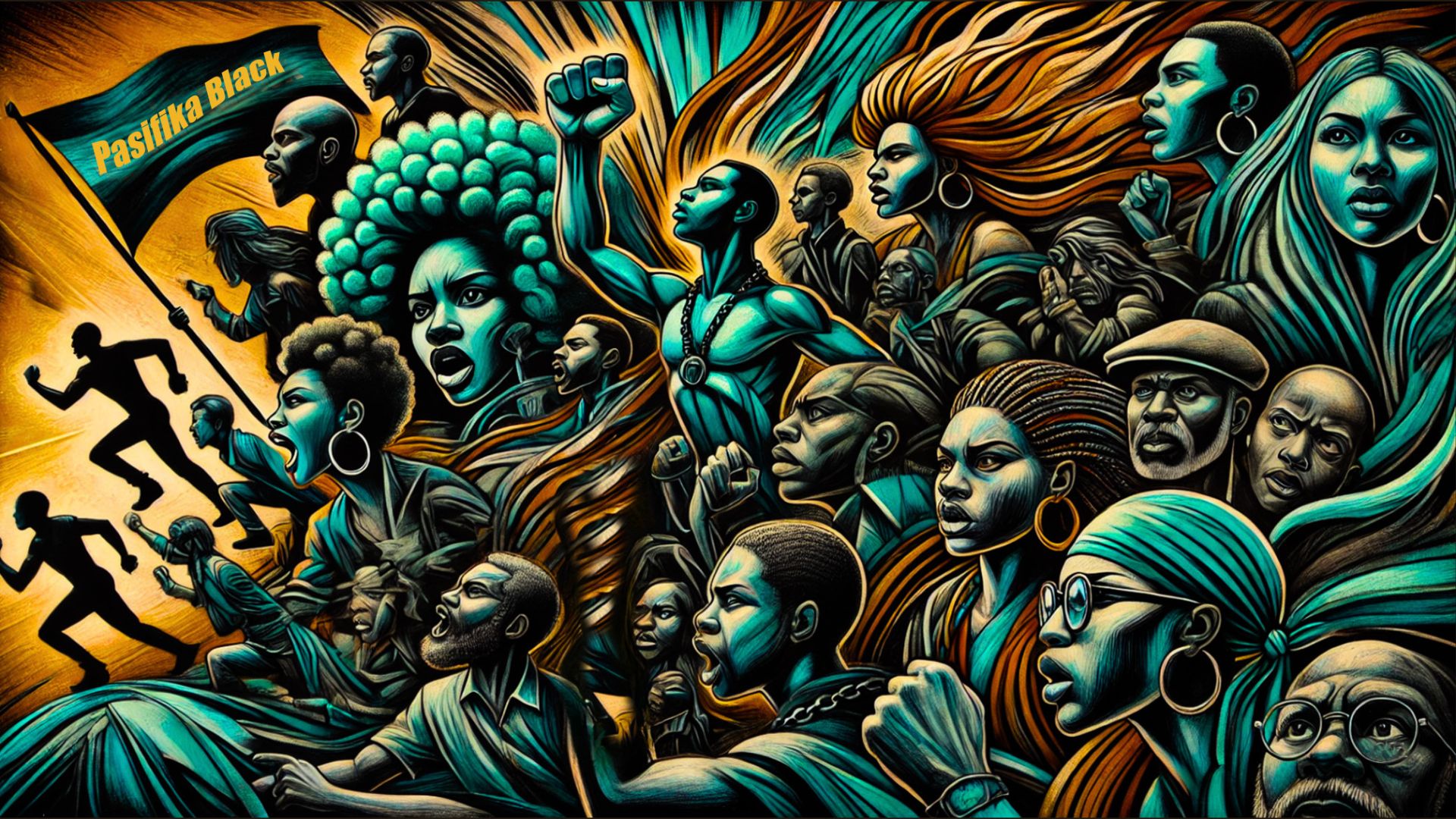(HKR-12-17-24) In a recent enlightening conversation on Hard Knock Radio, host Davey D engaged with Quito Swan, author of the groundbreaking book Pasifika Black: Oceania, Anti-Colonialism, and the African World (Black Power). The discussion revolved around the complex history of Blackness in the Pacific, exploring the profound connections between Black liberation movements globally and the anti-colonial struggles in Oceania. Swan, a professor and expert in African diasporic black internationalism, highlighted the often overlooked role of Black people in the Pacific Islands and how they have engaged with the larger Black power movements throughout history.
The Black Experience in Oceania: Uncovering Hidden Histories
The interview began with Davey D’s reflection on the emerging trends of nativism within the United States, emphasizing how this concept has limited the understanding of Blackness, making it more exclusive to American-born Black people. As part of this broader conversation, Swan highlighted how Blackness has historically existed beyond the borders of the U.S., particularly in Oceania, a region often excluded from mainstream discussions about Black identity.
Swan’s book takes on the monumental task of detailing the overlooked contributions of Black communities in the Pacific Islands. His research uncovers significant historical ties between the Black liberation struggles in the Pacific and those in the African diaspora. For instance, Swan points out that people in Papua New Guinea and other Melanesian islands were actively engaging with the Black Power movement in the 1950s, even corresponding with influential African American publications like the Chicago Defender and the Amsterdam News.
Historical Ties Between Black Struggles
One of the most striking parts of Swan’s work is his exploration of how the Black Power movement, largely centered in the United States, influenced and was, in turn, influenced by movements in Oceania. From the rise of Pan-Africanism to the contributions of leaders like Kwame Ture (formerly Stokely Carmichael) from Trinidad, Swan emphasizes the global reach of Black liberation. The conversation revealed how figures like W.E.B. Du Bois, Marcus Garvey, and even Bob Marley recognized and engaged with the struggles of the Pacific Islanders, incorporating their resistance into the larger narrative of the Black internationalism movement.
Through his book, Swan sheds light on the interconnectedness of these global struggles, showing how ideas from one region influenced actions in another. For example, Swan noted how the Black Panther Party’s global appeal reached New Zealand, where it inspired the formation of the Polynesian Panthers, an organization that echoed the Panthers’ commitment to Black liberation.
Black Power in the Pacific: A Legacy of Resistance
The discussion also covered the legacy of resistance in the Pacific Islands, with Swan providing examples from places like Fiji, Papua New Guinea, and New Caledonia. These regions, long subjected to colonial rule by European powers and Japan, have a rich history of anti-colonial resistance that often goes unrecognized. Swan argued that the Pacific Islands’ history of fighting back against imperialism is integral to understanding the global Black struggle.
Particularly notable is the role of women in these movements. As Davey D observed, many Black freedom fighters, especially women, have been overshadowed by their male counterparts in mainstream narratives. However, Swan’s book provides a platform for highlighting these women, such as Udu Guru, whose activism in Australia became central to anti-colonial struggles in the Pacific.
The Ongoing Struggles of the Black Pacific
As the interview continued, Swan delved into the contemporary struggles in the Pacific Islands, specifically in regions like West Papua, still under Indonesian control. He discussed the important role that Black power played in shaping the political consciousness of these regions, with activists such as the West Papuans, who wrote to American civil rights organizations seeking solidarity in their fight for independence.
Swan also highlighted how global media, particularly through the lens of anti-colonial and Black liberation struggles, has played a significant role in connecting these issues. He discussed the importance of recognizing that the fight for freedom and dignity is a global struggle, not one confined to the boundaries of any single nation.
Conclusion: Reclaiming Blackness Beyond Borders
By the end of the conversation, Davey D and Quito Swan had made a powerful case for broadening the understanding of Blackness beyond the traditional confines of American identity. Swan’s book offers a critical reexamination of the Black liberation movement and its deep roots in Oceania. Through his work, readers are encouraged to recognize the contributions and struggles of Black communities worldwide and appreciate the interconnectedness of global liberation movements.
Swan’s work reminds us that the history of Black resistance is not limited to the United States or even Africa, but is a global phenomenon, with the Pacific Islands playing a crucial role in shaping the history of Black liberation. For those looking to expand their understanding of Black internationalism and anti-colonial struggles, Pasifika Black is an essential read that uncovers a hidden chapter in the global fight for Black freedom.
Key Takeaways:
- Quito Swan’s Pasifika Black uncovers the often forgotten history of Black people in Oceania and their role in global Black liberation struggles.
- The Black Panther Party and other U.S.-based Black power movements inspired similar movements in the Pacific Islands.
- The history of anti-colonial resistance in Oceania is integral to understanding Black internationalism and the broader global struggle for Black freedom.
- Women have played a pivotal role in the Pacific’s liberation movements, a fact often overlooked in mainstream historical narratives.
By highlighting these themes, Pasifika Black serves as a vital contribution to understanding Blackness on a global scale, offering a more inclusive narrative of the Black liberation movement.


Leave a Reply